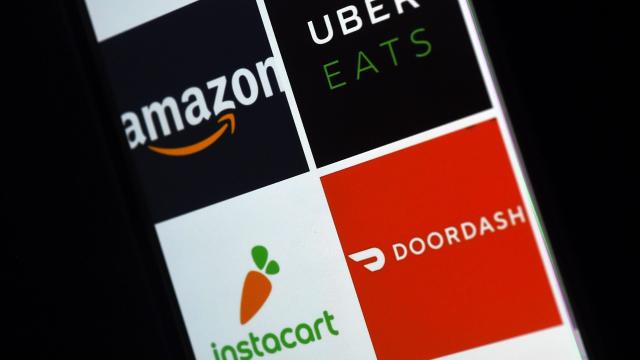Food delivery startup Instacart has built its brand on lightning-fast grocery drop-offs, but the convenience economy never sleeps: This week, The Information reported that the company plans to launch a pilot version of an even speedier, 15-minute delivery plan as soon as early next year — a significant step up from its current two-hour delivery window.
Per The Information, two insiders with knowledge of the proposed program say that it hinges directly on liaising with “…a company that manages couriers to quickly deliver goods from the same grocery stores whose merchandise Instacart already offers to its existing customers.” To that end, several logistics companies are already reportedly being courted by Instacart to submit proposals to become said management entity, and if all goes to plan, Instacart could be promising 15-minute deliveries in a U.S. city near you by February.
Before we continue, a personality quiz: When you dine out at Burger King, do you a) feel generally OK with making small personal adjustments to your order, or do you b) just order your burger as-is, accepting that it’s not the kind of place where you get picky about things? If you walk into a crowded Starbucks during the morning rush, do you a) order the ultra complicated drink you saw an influencer talk about on TikTok, or b) opt for something simpler out of fear of inconveniencing an overworked barista? If you order something you don’t love at a restaurant, do you a) send it back to the kitchen, or b) take the L because the waiter’s busy, and vow to order something different next time?
At the end of the day, you’re either the type of person who’s willing to sacrifice a little comfort in order to hopefully minimise the suffering of the people cooking, delivering, and selling your food, or you’re the kind of person who has a more me-first attitude about things. The latter isn’t morally wrong, per se, but the story is complicated: Just as we’ve become so divorced from the realities of our food systems, never pausing to wonder how a cherry tomato made its way from a farm out in California to our salad plates, we’ve become increasingly far removed from the labour it takes to ferry it there. Our convenience always has a cost, whether the person bearing the brunt of that burden is a farmer, a waiter, or an Instacart gig worker who’s suddenly tasked with rushing your pancake mix to your doorstep inside of an ever-shrinking delivery window.
The real problem with Instacart’s 15-minute pilot program obviously begins and ends with the fact that the company already treats its workers like garbage. Just last month, drivers walked off the job over frustrations about inadequate working conditions, demanding that the company return to a commission-based pay model and reinstate the 10% default tip (the current default tip is 5%). Those demands, born out of a desire to have a pathway toward making a living wage, are made worse by the fact that Instacart has a $US39 ($55) billion valuation while gig workers have struggled to deliver groceries throughout the pandemic at great risk to their own physical and mental well-being.
When something sounds like it’s too good to be true, it usually is, and unfortunately there’s no reason to believe that Instacart’s already shoddy labour practices will be any different with any even tighter delivery window in play.
If the cost of your convenience is obvious distress for a minimum wage worker, it ain’t worth it. Forgive the waiter for your forgotten side of ketchup, delete that last Christmas gift from your Amazon overnight shipping order, succumb to the humiliating human experience of realising that the chicken recipe is going to have to do without the scallions you forgot to add to your first grocery order. It might not taste as good, but the world will be a little nicer for it.
